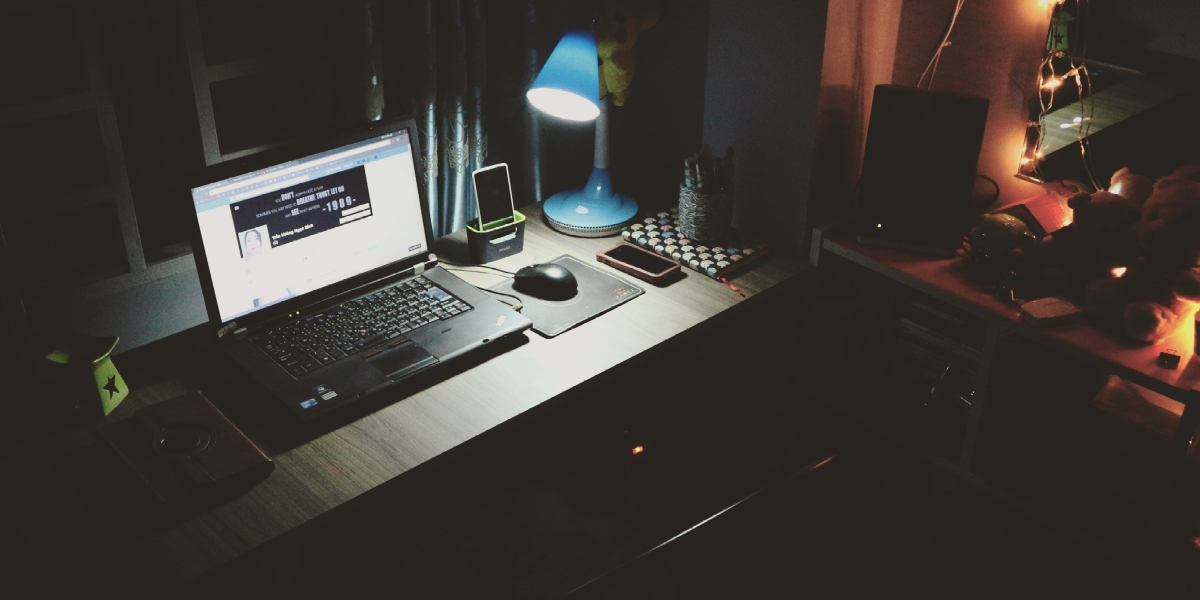6 Conditions of Modern Life that Disrupt Circadian Rhythms

Getting to sleep isn’t always easy.
You can do all the things you’re “supposed to” do, such as turning off screens an hour before bed, avoiding caffeine in the afternoons, and exercising daily, but sleep is still elusive. No matter how hard you try, you just can’t settle your brain.
While there are things you can easily change that can impact your sleep immediately, it’s possible you’re experiencing a disruption to your body’s natural circadian rhythm, making it more difficult to fall asleep when you’re supposed to and to stay awake during the day.
The conveniences and conditions of modern life are to blame for these disruptions, and here are 6 of the worst offenders:
Alarm Clocks
Our bodies were made to sleep when it got dark and wake up when the sun came up.
That’s the natural circadian rhythm, but indoor life has changed that. We’ve got electric lights and alarm clocks, allowing us to go to bed later and later and wake up whenever we need to. After years of disrupting our natural impulses to wake when we’re rested with the ringing of an alarm clock, our circadian rhythm shifts.
Windowless Offices
Have you ever started at a new job and discovered your desk is near a window, giving you a little boost?
The natural sunlight that comes in through windows during the day goes to work on our brains, telling them to produce the feel-good chemicals of serotonin and endorphins. These neurotransmitters give our brains and moods a little lift. That’s why, when you walk outside into a nice, sunny day to get lunch, you just feel happy.
But with modern offices getting larger and larger, and desks being shoved more into the interiors of buildings, humans are exposed to less daytime sunlight. This lack of sunlight has been linked to a rise in mood disorders and sleep difficulties.
Electric Lights
Humans were made to feel sleepy when it began to get dark. However, with the invention of the electric light, we were able to keep our homes lighter for longer, increasing the amount of time we could stay awake each day.
Before electric lights, humans may have stayed up a little after the sun went down, but candlelight is a poor substitute for bright sunlight, and it was difficult to read or do work in the dimmer light.
With the advent of electric lights, that after-dark light grew brighter, tricking the brain into thinking it was still daylight. As artificial light became more and more similar to natural light, humans were able to stay up later and wake up earlier, making sleep more elusive.
Stress
Yes, humans have experienced stress forever, but the types of stressors and length of time we’re exposed to them has changed.
In the early days of humanity, stress was generally limited to fulfilling basic needs: finding food and shelter, and guaranteeing safety.
Now, however, we’ve got those stresses plus a whole host of other ones: our boss pressuring us to do more work in the same amount of time, seeing all the vacations our friends seem to be taking on social media, just driving to and from work, and more.
When we’re stressed, it’s more difficult to fall asleep and stay asleep. As a result, we’re more tired the next morning, throwing off our whole system.
Sedentary Lifestyles
It’s no secret that the fact that we sit a lot is a problem for humans.
Our sedentary lives lead to higher rates of obesity, increasing rates of heart disease, and more depression. But they also contribute to our inability to get to sleep.
When we aren’t active, it’s more difficult for us to fall asleep, as our bodies aren’t as tired as they should be. This inability to sleep is a perpetuating cycle, meaning one night of bad sleep makes us more tired the next day, which makes us less likely to be active, which makes it more difficult to sleep.
Screens
Staring at screens – computers, TVs, phones – is part of modern life, but it’s also one that’s severely impacting our sleep patterns.
These screens emit a soft blue light that changes our brains’ ability to settle and rest. By using screens for multiple hours daily, our brains are receiving vast amounts of this blue light.
Shutting down all devices an hour or so before bed – and never aimlessly scrolling through social media on your phone in bed – is a good practice that can improve your sleep for one night, limiting screen time daily is required for real, long-term changes to take hold.
Your Online Resource for Bright Light Therapy Boxes
At The SunBox Company, we’re passionate about helping you get the best sleep possible with bright light therapy. Just 15 to 30 minutes a day, first thing in the morning, can improve your sleep, decrease symptoms of depression, and help you feel happier. Shop our online catalog or give us a call today!

